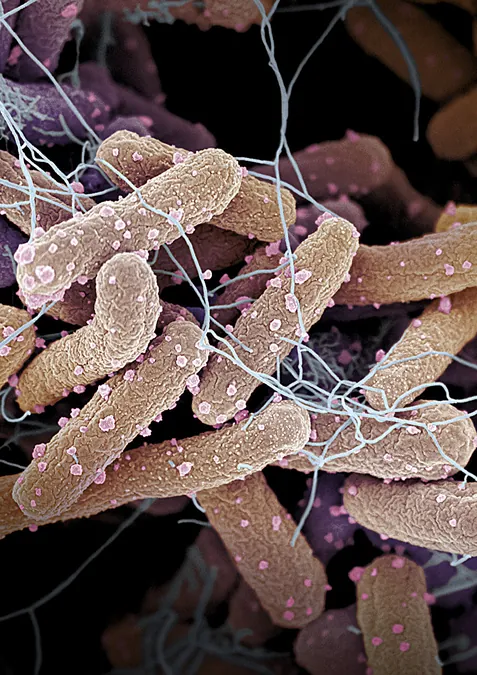
Bacteria's Surprising Sensitivity: How Slower Growth Heightens Awareness of Their Environment
2025-05-08
Author: Sarah
A Groundbreaking Discovery in Bacterial Behavior
In a fascinating new study led by Professor Erik van Nimwegen at the Biozentrum, University of Basel, researchers have unveiled a previously unknown mechanism that dictates how bacteria respond to their surroundings. This groundbreaking research links the growth rate of bacteria to their sensitivity toward environmental signals—a connection that could revolutionize our understanding of microbial life.
The Surprising Link Between Growth and Sensitivity
The team stumbled upon this intriguing relationship through careful observation. According to Dr. Thomas Julou, the study's lead author, the revelation is striking: "The slower a cell grows, the more attentively it responds to environmental cues." The simplicity of this newly discovered mechanism, which likely spans across various biological systems, is particularly compelling.
How Bacteria 'Listen' to Their Environment
When conditions are ideal and cells flourish, they tend to overlook environmental "noise." Conversely, in tougher times, they become acutely aware, actively seeking out information to adapt and survive. The researchers propose that a cell's growth rate is integral to the dilution of signaling molecules, including those crucial for gene regulation.
In fast-growing cells, these signaling molecules are rapidly depleted, resulting in a muted response to external stimuli. In contrast, in slower-growing cells, these molecules linger longer and accumulate, enhancing the cell's sensitivity to changes in their environment.
E. coli: A Model for Experimental Validation
To validate their theory, the research group conducted experiments with E. coli bacteria, employing cutting-edge techniques like microfluidics and time-lapse microscopy for detailed single-cell analysis. Remarkably, they also achieved significant findings through traditional methods that have been used since the dawn of molecular biology, showcasing the robustness of their conclusions.
Implications for Future Research
This astonishing insight into bacterial behavior not only sheds light on how microorganisms adapt but also opens new avenues for research in fields like antibiotic resistance and ecological dynamics. By understanding the sensitivity of slow-growing bacteria, scientists can explore innovative approaches to combat infections and harness microbial potential in various applications.






 Brasil (PT)
Brasil (PT)
 Canada (EN)
Canada (EN)
 Chile (ES)
Chile (ES)
 Česko (CS)
Česko (CS)
 대한민국 (KO)
대한민국 (KO)
 España (ES)
España (ES)
 France (FR)
France (FR)
 Hong Kong (EN)
Hong Kong (EN)
 Italia (IT)
Italia (IT)
 日本 (JA)
日本 (JA)
 Magyarország (HU)
Magyarország (HU)
 Norge (NO)
Norge (NO)
 Polska (PL)
Polska (PL)
 Schweiz (DE)
Schweiz (DE)
 Singapore (EN)
Singapore (EN)
 Sverige (SV)
Sverige (SV)
 Suomi (FI)
Suomi (FI)
 Türkiye (TR)
Türkiye (TR)
 الإمارات العربية المتحدة (AR)
الإمارات العربية المتحدة (AR)